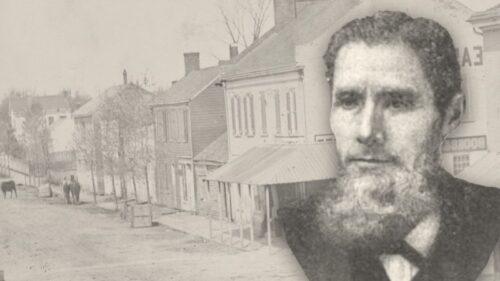-
I Need The Affirmation Of Thy Love, O Lord
Some of the points covered in this sermon: • Providing an overview of the Apostle Paul’s three evangelistic campaigns against the backdrop of a geographical timeline • Tracing the time and location around which the events of Acts 14:20-22 occurred • Highlighting the term “confirmed”, providing a definition for the Greek term and the number of time it appears in the New Testament • Tracing the time and location around which the events of Acts 15:30-35 occurred • Tracing the time and location around which the events of Acts 15:36-41 occurred • Tracing the time and location around which the events of Acts 18:18-23 occurred • Tying together these four texts, by comparing and contrasting the way in which the term “confirmed” is used in each passage…
-
Churches Should Appoint Elders?
Churches are among the only communities in the world which view 'elders' as an appointed or elected office. The universal and historically recognized meaning of the term refers to unofficial leaders of a community, distinguished by their age, wisdom, wealth and influence. They are not appointed or elected to an office of eldership. Rather, they assume an informal role of leadership when the younger members of the community acknowledge them as elders. Indeed, this is precisely how the term is used in the scriptures. The appointment or election of persons to an eldership is based squarely on ecclesiastical edicts and traditions, which are read into the scriptures. Over the last sixty years, many Baptist churches have adopted these traditions. Regardless of the Reformed Baptists claiming…
-
A Kingdom Which Cannot Be Moved
Some of the points covered in this sermon: • Highlighting the seven parts of Hebrews 12:28,29 • Using the framework of sovereign grace, identifying five separate kingdoms and showing which kingdom is referred to in the text • Explaining how this kingdom cannot be moved • Showing who are the recipients of this kingdom • Explaining how the recipients of this kingdom are to have grace • Explaining what it means for the recipients of this kingdom to serve God acceptably with reverence and fear • Explaining how the recipients of this kingdom are blessed by God who is a consuming fire
-
Two Or Three Covenants?
One of the reasons many Reformed believers assert it is the duty of all sinners to savingly believe on Christ is because they distinguish between the covenant of redemption and the covenant of grace. They believe the covenant of redemption was made between the Father, the Son and the Spirit from eternity, whereas the covenant of grace is made between Jehovah and the sinner in time. They view the covenant of redemption as existing in the background of God’s plan for the ages, whereas the covenant of grace is set in the foreground of man’s responsibility for today. R. C. Sproul outlined this view in his book, “What Is Reformed Theology”. He explained Reformed Theology is primarily concerned with three major covenants—the covenant of redemption,…
-
God’s Will For Your Life
Some of the points covered in this sermon: Exploring the will of God for His regenerate people, as it relates to the practicalities of life, according to the threefold view of life depicted by the Apostle Paul in Colossians 3:1-4 I. The Life That Was—“For ye are dead,” (3a) II. The Life That Now Is (1,2,3b) 1. Its Essence—“and your life is hid with Christ in God.” (3b) 2. Its Evidence—“If ye then be risen with Christ,” (1a) (1) Seeking After Christ—“seek those things which are above, where Christ sitteth on the right hand of God.” (1b) (2) Setting Affections On Christ—“Set your affection on things above, not on things on the earth.” (2) III. The Life That Will Be—“When Christ, who is our life,…
-
Persuasional Regeneration?
In an article entitled, “The Need For Persuasion In The Preaching Of The Gospel”, Peter Masters wrote: “The hyper-Calvinist regards the regenerating work of the Spirit as a total and complete work of conversion carried on in the heart by the Spirit in a direct manner...Believing that the whole of regeneration and conversion is accomplished by a direct work of the Spirit in the heart, and that repentance and faith are the fruit and evidence of a soul already saved, the preacher has no exhortation left to make!” This is a classic Reformed (Fullerite) Baptist position. I respond:[1] First, the “hyper-Calvinist” does believe the regenerating work of the Spirt is total and complete. Second, the “hyper-Calvinist” does believe that repentance and faith are the fruit…




